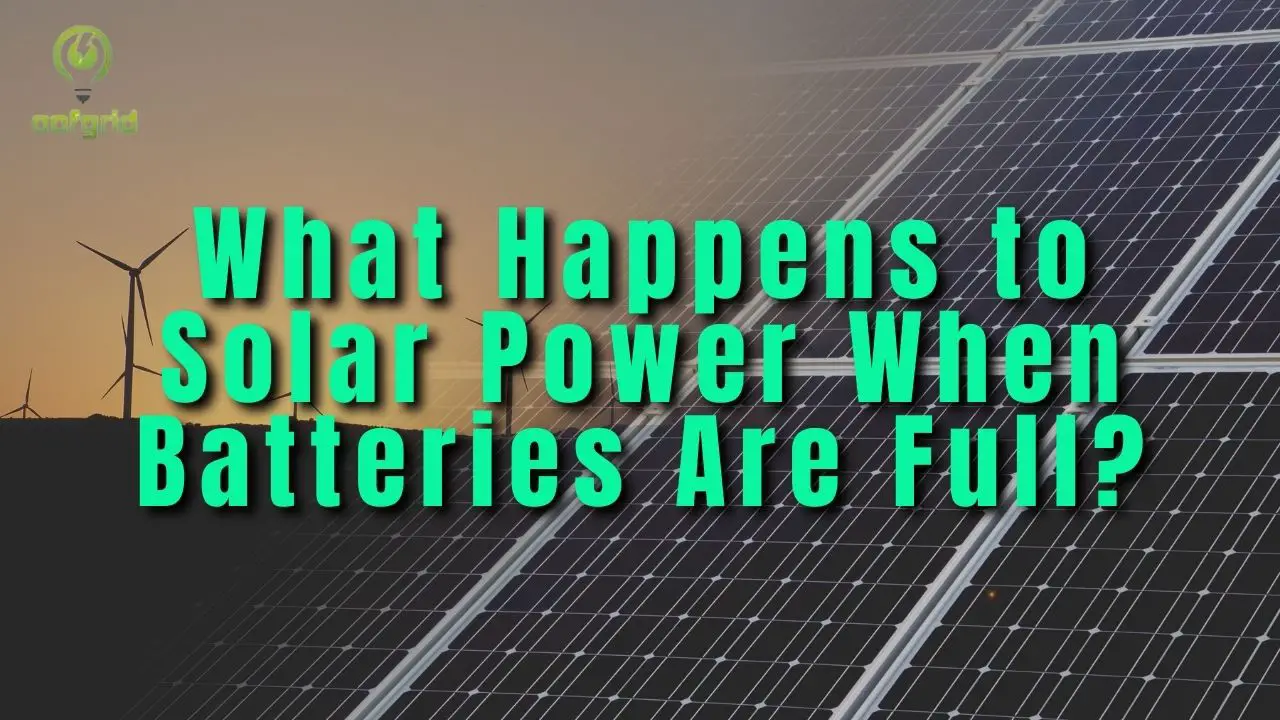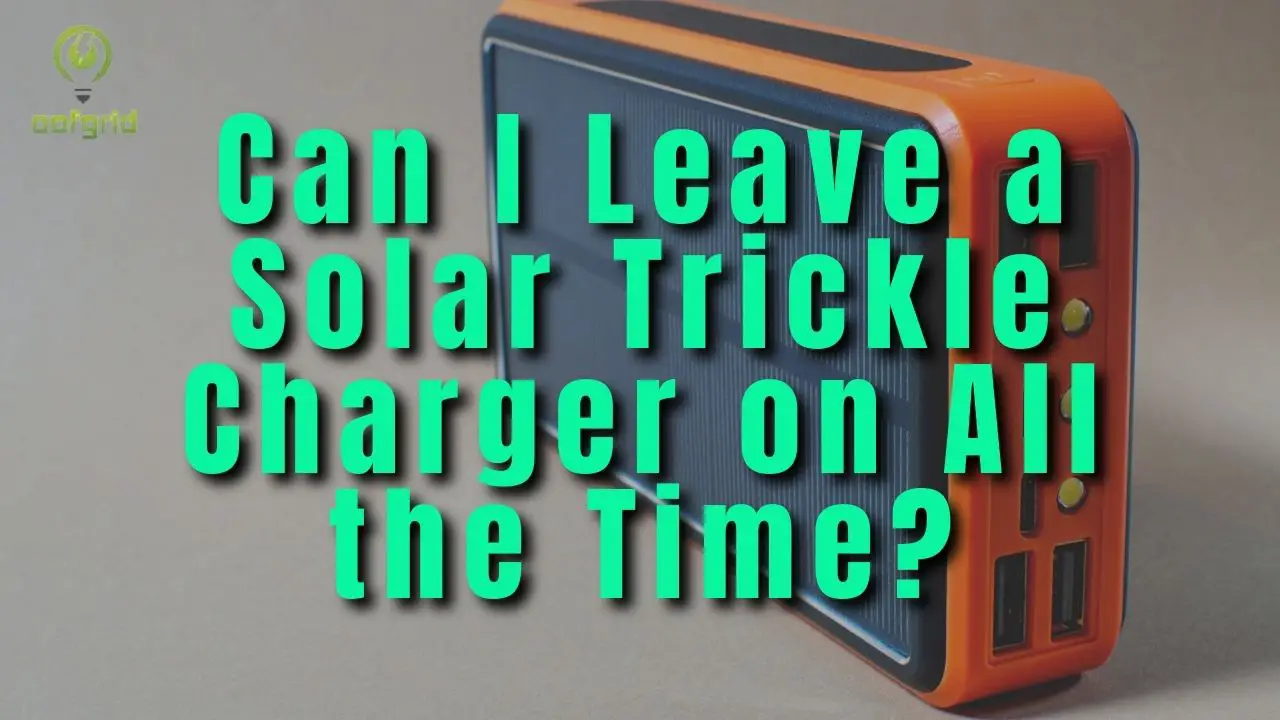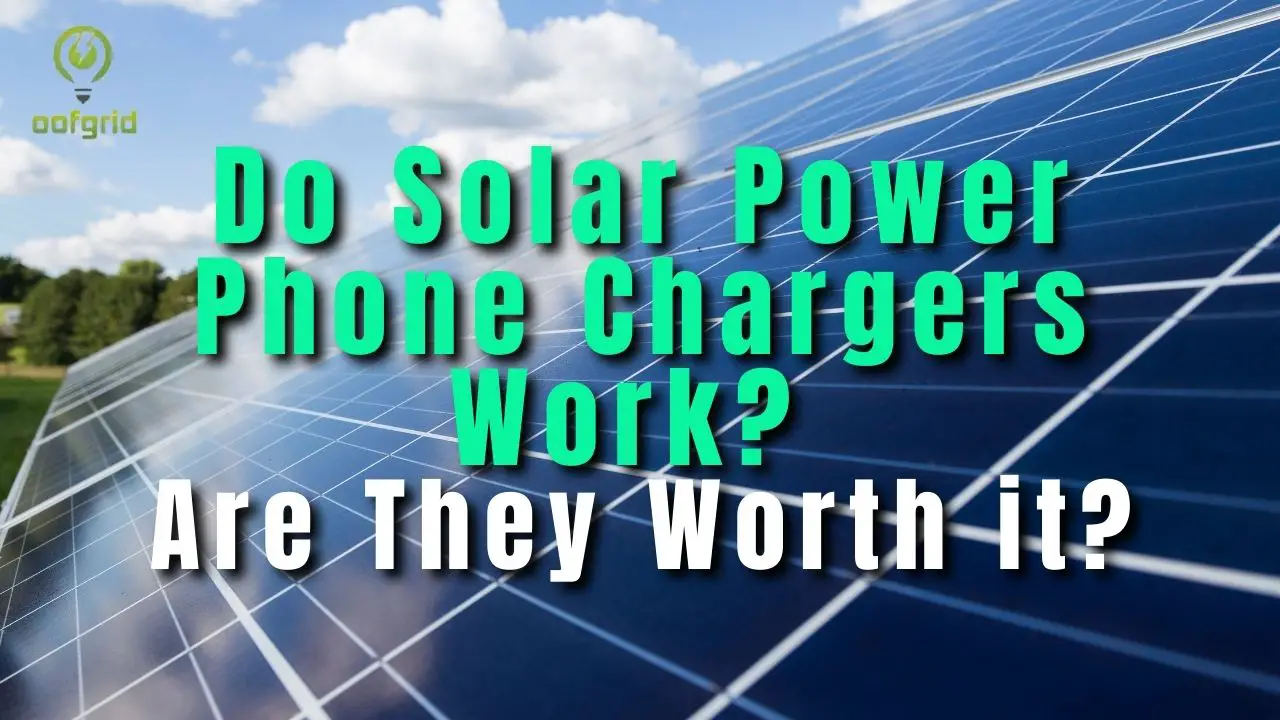Solar panels can drain the power from your battery bank at night if you do not have a charge controller installed correctly or a problem with the writing and grounding of your solar setup. Start by ensuring that your solar panels and battery bank are wired correctly, then check that your charge controller is functioning.
Solar power banks or batteries collect energy during the day and store it to be used at night and when solar energy is not available.
If your batteries are not in use during the night the batteries should not be using much power and the charge level should be the same in the morning.

Contents
What happens to solar panels at night?
Solar systems have four main components:
- Solar Panels
- Charge Controller
- Batteries
- Inverter
If your solar batteries seem to be draining when not in use you should check each component to find the issue:
Bad Batteries
Batteries that have been overcharged, overheated, or drained completely may have trouble holding or receiving a charge.
If your batteries seem to die quickly when they are not receiving a charge from your panels, they may be at the end of their lives.
Depending on how you have wired your batteries, one battery can be draining the others, so be sure to check each battery to find the culprit.
Start by checking each battery to be sure it has not swollen or cracked its housing. Batteries that have any damage need to be replaced.
Batteries are usually the most expensive part of a solar power system and you may have chosen to go with the lower cost lead-acid batteries.
Lead-acid batteries have a lifespan of 5 to 7 years and then they will need to be replaced.
If your batteries are a few years old, have been exposed to heat, or overcharging, test them with a multimeter or bring them to an auto parts store where they can try slow charging the battery for you.
Lithium batteries have a longer lifespan but need to be replaced every 10 years or so. They may be more sensitive to overcharging and should be protected from heat.
Heat is the biggest enemy of all batteries and it will shorten the life of any batteries.
If your batteries have been overcharged, expect to need to replace them sooner.
Charge Controller
Your charge controller sits between the solar panels and the batteries and controls the flow of power from the panels to the batteries.
If your charge controller is improperly wired it can keep the batteries from charging or allow the power to flow from the batteries to the solar panels.
Charge controllers are usually one of the least expensive components in a solar power set up and if you cannot figure out the problem, it may be the first thing I try to replace.
Consult your owner’s manual (usually available online) to be sure it is wired correctly and if you are unsure reach out to an electrician or your manufacturer to ask for more detailed wiring plans.
Hidden Draw (Inverter)
If you use your solar power infrequently, check for any hidden draws on the system.
Inverters are the biggest culprit. They do not draw much power, but over time, it can drain your batteries.
Good batteries that are fully charged will maintain their charge for many days without much charge lost.
If your batteries are not maintaining their charge, and they are good batteries that have not been damaged, there is something draining the batteries while you are away.
Check all your wiring and ground to be sure that no exposed wires are in contact with any surfaces that may be causing the battery to discharge. This is incredibly dangerous as it can start an electrical fire.
Solar Diode
Diodes are electrical components that allow the flow of energy in only one direction.
Most solar panels have diodes built-in that block energy from passing from the batteries back to the solar panel, but you should check to see that there are no additional diodes along with your wiring setup.
Diodes have mostly been replaced by charge controllers in modern solar power systems.
You should also look for information on the diode placement in your particular panels to be sure you have wired them to the charge controller correctly.
Diodes allow the flow of power in only one direction and they may have been used in your setup to bypass a shaded or broken portion of solar panels. This reduces the loss of electricity as it passes through a broken or shaded portion of the panels. These are called bypass diodes.
Bypass diodes are usually not a part of an original solar installation but are installed afterward to jump a broken or chronically shaded panel.
Although it is unlikely, check to see that no additional diodes have been added to your system that is blocking the appropriate flow of energy to your battery bank.
Mismatched Components
I am sure you took time to plan and research the components that you used in your solar power rig, but it is possible that some of your components mismatch.
As a general rule, your panel’s volts should match your battery volts, but if you have a mismatch you can wire each panel to its own charge controller and fix it in a very inexpensive way.
Why does my solar charger drain my batteries?
Solar panels can drain your batteries if your panels are wired incorrectly or if you are not using a charge controller.
If this is a new, or new to you system, contact the manufacturer and see if they offer support. They may be able to help you troubleshoot over the phone, this can resolve many issues in a new system.
Your system should have a charge controller and blocking diode or bypass diode that blocks the flow of electricity from the batteries to the panels.
Charge controllers keep power from flowing from the batteries to the panels.
Charge controllers are very inexpensive and they protect your panels and your batteries from dangerous levels of electricity reaching either component.
There is plenty of discussion on charge controllers when setting up your solar, but blocking and bypassing diodes are less talked about.
We know electricity flows much in the same way as water flows through pipes, and diodes keep the water from flowing backward.
Diodes may create problems with the flow of electricity from the solar panels to the batteries or from the batteries to the panels.
Since the location and function of diodes in panels, charge controllers, inverters, and even batteries varies from manufacturer to manufacturer you may need to check your manuals to determine if there is a conflict causing the batteries to drain.

How long do solar batteries stay charged?
The type of battery you choose and the amount of energy that you are consuming will determine how long your batteries will maintain their charge. Think of your battery bank like a water tank and each time you use power, a bit of the water is taken out of the tank, when the tank is empty the batteries are dead.
If your batteries are not being used they should hold their charge for several days to several months depending on the type of battery and its condition.
Lead-acid batteries are the kind used in most cars, you can leave a car sitting without starting it for a few weeks and it will still charge, meaning the battery still has enough power to start the car.
Lithium batteries are the kind used in most electronics. That old phone in your drawer may turn on months after its last charge meaning the battery has held its charge all those months.
Older batteries may lose their charge more quickly than new batteries and damaged batteries may not be able to hold a charge at all.
The number and size of the batteries you choose should match your estimated power needs.
If you find that your batteries are dying when not in use, you should check to see that there are no devices, like an inverter, that may be drawing power from the batteries. You should also check to ensure the health of your batteries.
Older batteries or batteries that have been overcharged in the past may have trouble holding a charge when not in use.





